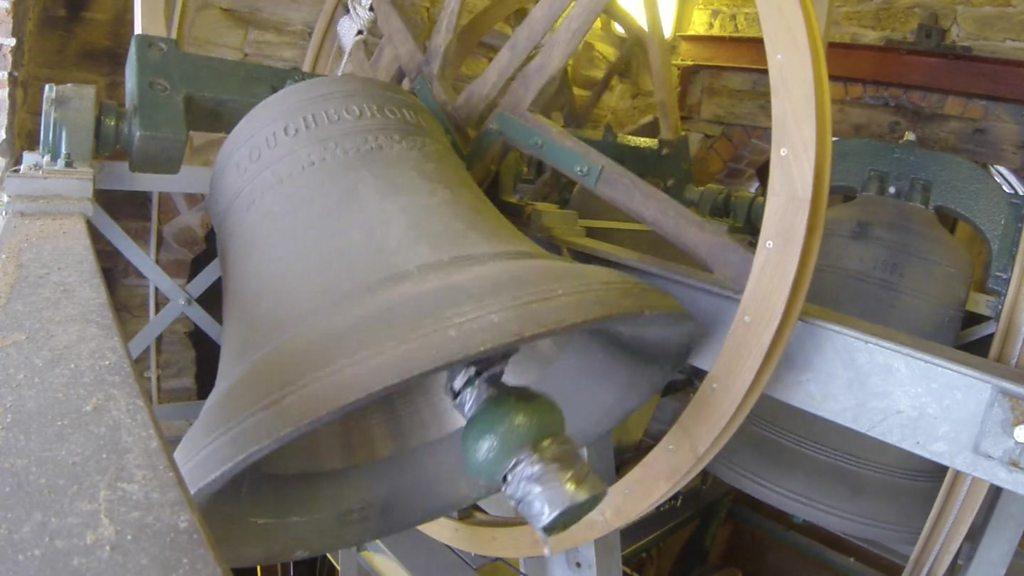Bell-ringers want more young people to get involved
- Published
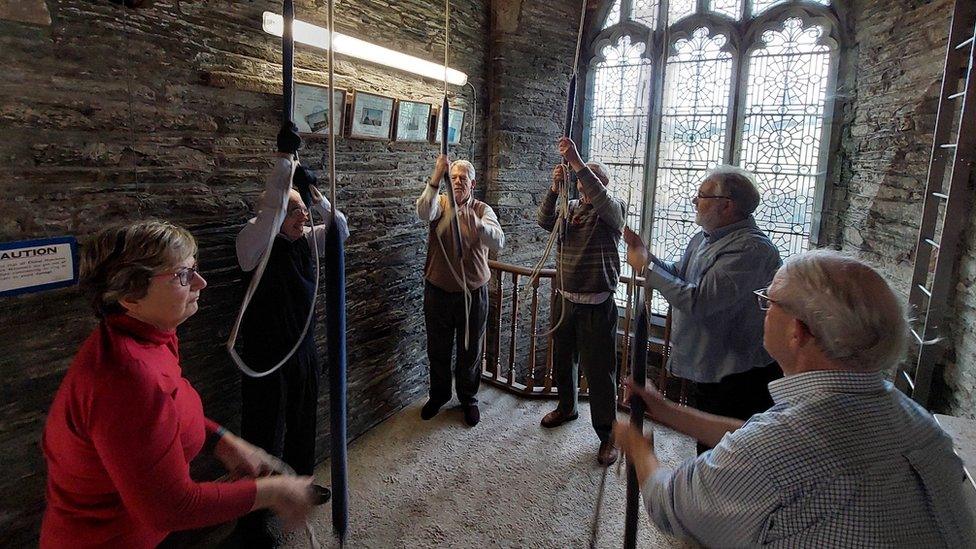
The bells have been manually rung in Ermington for more than 500 years
"The church bells are the sound of England - no other country does this to the same scale."
That is how bell-ringer John Eardley sums up the world of campanology - the subject of bells - as part of a push to get younger people involved.
Mr Eardley, the 80-year-old tower captain of the Church of St Peter and St Paul in Ermington, Devon, was a boy when he started.
But young people getting involved in bell-ringing is a rarity now - and some fear more churches could fall silent.
Across the UK, there are about 38,000 bells, but only 30,000 bell-ringers, the Central Council of Church Bell Ringers, external said.
The organisation is aiming to fill the shortage and recruit more bell-ringers ahead of next year's coronation of King Charles III.
Playing an important role in the national celebration, the council is encouraging as many churches to ring their bells as possible on the day of the coronation.
With volunteers already having to backfill at other towers, organisers fear some churches may not be able to participate.
Next generation
In Ermington, the bells have been manually rung for more than 500 years.
Meeting every week, Mr Eardley's group ensures the tradition is kept alive in the South Hams village.
He is hoping next year's coronation of King Charles III will spur the next generation of bell-ringers.
"I've rung at 312 different churches - that's how much I enjoy it," Mr Eardley said.
"Every church is different and that's part of the challenge."
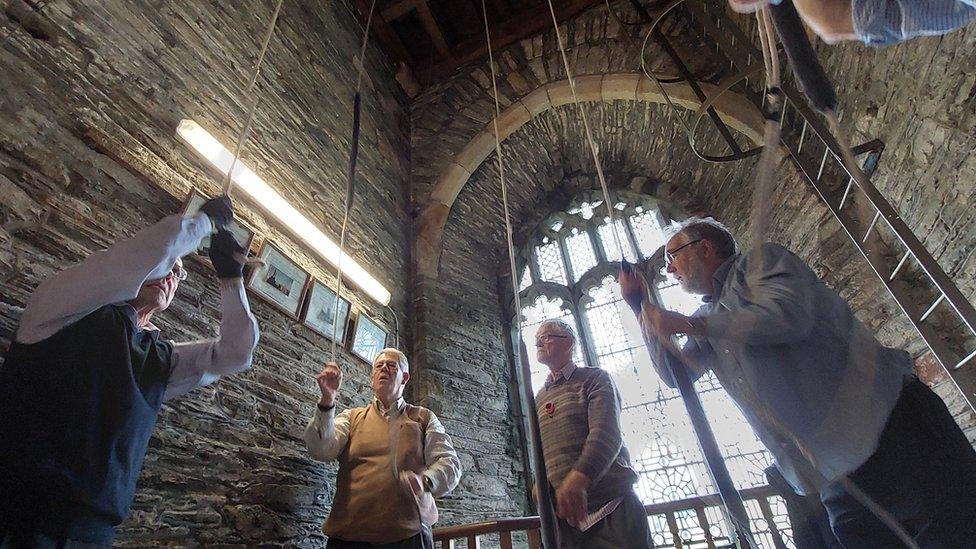
Bell-ringers are calling for younger people to get involved
He said the art would appeal to anyone who was interested in music and rhythm.
"If you can dance well, you can probably ring well," he said.
Lynne Hughes, from the Guild of Devonshire Ringers, said people in the county were often 50 or 60 when they decided to get into bell-ringing.
"That's all very well for now, but that's not planning for the future, is it?" she said.
"We need people of all ages coming through - some places don't have any younger people at all."
Ms Hughes, who is also the tower captain at St Gregory's Church in Dawlish, was 17 when she started bell-ringing.
"It's a bit like learning a musical instrument or playing sport - if you start when you're younger you might go on to be an expert," she said.
"It would be such a shame if churches didn't have ringers and the bells were never rung - unfortunately there are churches in that position, even now."

Elena Brake said curiosity got her involved with bell-ringing
Elena Brake, 29, began ringing at the Minster Church of St Andrew in Plymouth five years ago.
"It was curiosity that got me involved," she said.
"I wanted to meet new people and try something a bit different - it just so happened that the bells were ringing at the time I wanted to do something.
"I turned up and they were really welcoming and straight away from that first practice I was part of the family."
Ms Brake is a founding member of the Young Change Ringers Association set up to encourage and inspire young bell-ringers.
She said bell-ringing gave young people a chance to learn new skills.
'Loudest instrument in town'
"You become part of this tradition that operates across the whole of the UK and the world," she said.
"It's a public performance - there's always a challenge and you have to work together as a team to get it to sound good. It's a whole new set of skills - like teamwork or communication skills - things like that are really valuable and can stay with you."
She said bell-ringing was "part of the soundscape of Britain" and more young people needed to become involved.
"It's the loudest instrument in town," she said.
"Bells are associated with happy occasions, but also remembrance - we remind people to stop and think.
"When the Queen died and ringing happened across the UK, we celebrated her life and mourned her loss. It was only a very small part of [the period of mourning] but you could feel how important it was."

Follow BBC News South West on Twitter, external, Facebook, external and Instagram, external. Send your story ideas to spotlight@bbc.co.uk.
- Published19 September 2022
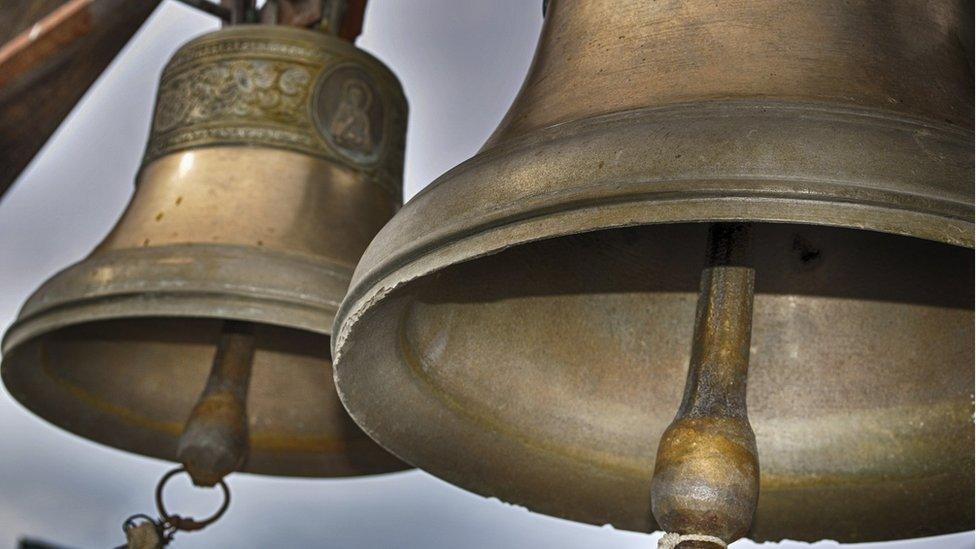
- Published17 April 2022
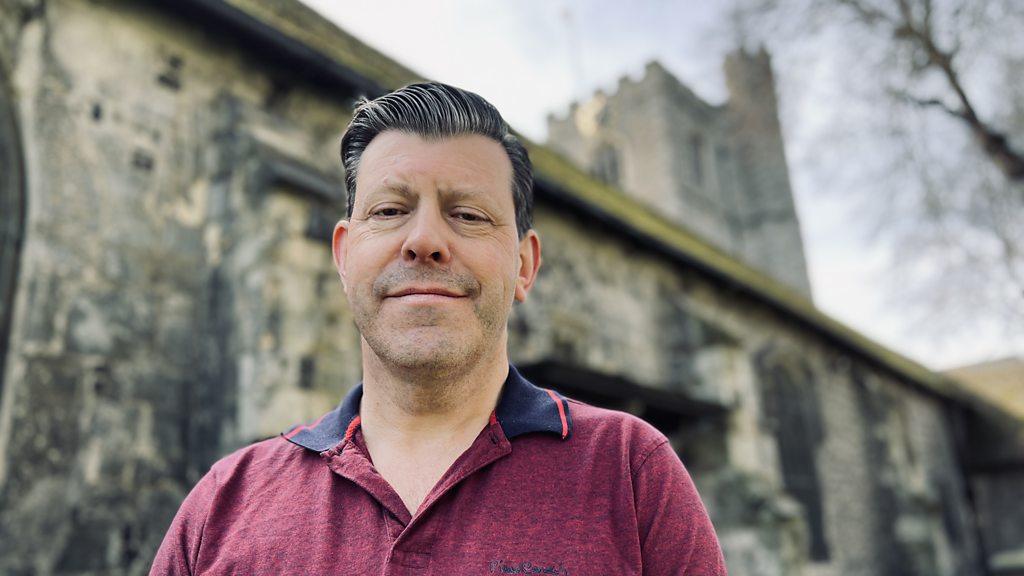
- Published4 September 2016
